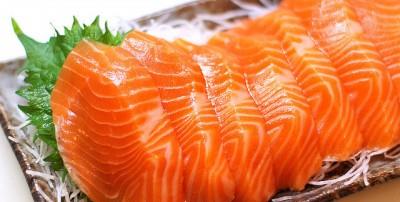Researchers have shown that omega 3 plays an important role in our physical as well as mental development, especially for children aged 0-6 years. Supplementing with omega 3 helps to maintain a healthy body, develop good physical strength, gradually improve the immune system, help prevent the onslaught of bacteria and viruses.
1 / The role of Omega 3
Omega 3 are polyunsaturated, polyunsaturated fatty acids, they include 3 main types: EPA, DHA, DPA. In the body, EPA is considered to be an essential fatty acid that will be converted into important biological substances such as prostaglandins and leucotrienes. DHA is also an important fatty acid in enhancing brain activity.
Omega 3 is an important component located in the structure of the nerve cell membrane, considered as "the building brick for the human brain". DHA accounts for a very high proportion in the brain's gray matter, affecting intelligence and in the retina, the total command of vision. According to research, DHA accounts for up to 20% of the weight of the brain and makes up nearly 60% in the retina. DHA induces the sensitivity of nerve cells, making information much faster and more accurate. Omega3 fatty acids help in the formation of neurons, transport of glucose, the main nutrient for brain function.
>>> See more: Thinking games to help your baby develop intelligence
Omega 3 fatty acids are not only needed for brain development and enhancing children's eyesight, but also plays a very important role in cardiovascular health. Recent nutritional studies have also shown that, Omega 3 also enhances the health of the heart, reduces the risk of stroke, and improves blood circulation. A clinical study showed that people with high levels of Omega 3 in the blood have an 80% lower risk of sudden cardiac death and 34% lower risk of coronary heart disease compared to people with Omega 3 levels in the blood. short.

Salmon is one of the rich sources of Omega 3 for your baby.
2 / How to supplement Omega 3?
Although everyone knows the practical effects of such Omega 3 fatty acids, how to fully and effectively supplement Omega 3 for children is not a simple matter. Because, the human body cannot synthesize this fatty acid but can only absorb it through eating.
>>> See more: 7 foods to help children develop IQ
Omega 3 is abundant in all kinds of seafood, especially fish living in cold seas such as salmon, tuna, mackerel, herring, and eel ... Some other foods are also a rich source of Omega 3 for children. , including green leafy vegetables, walnuts and nuts, eggs. Mother should also increase the child eat vegetable oils that contain high amounts of Omega3 fatty acids or animal fats such as poultry fat, which also contain these fats.
MarryBaby












